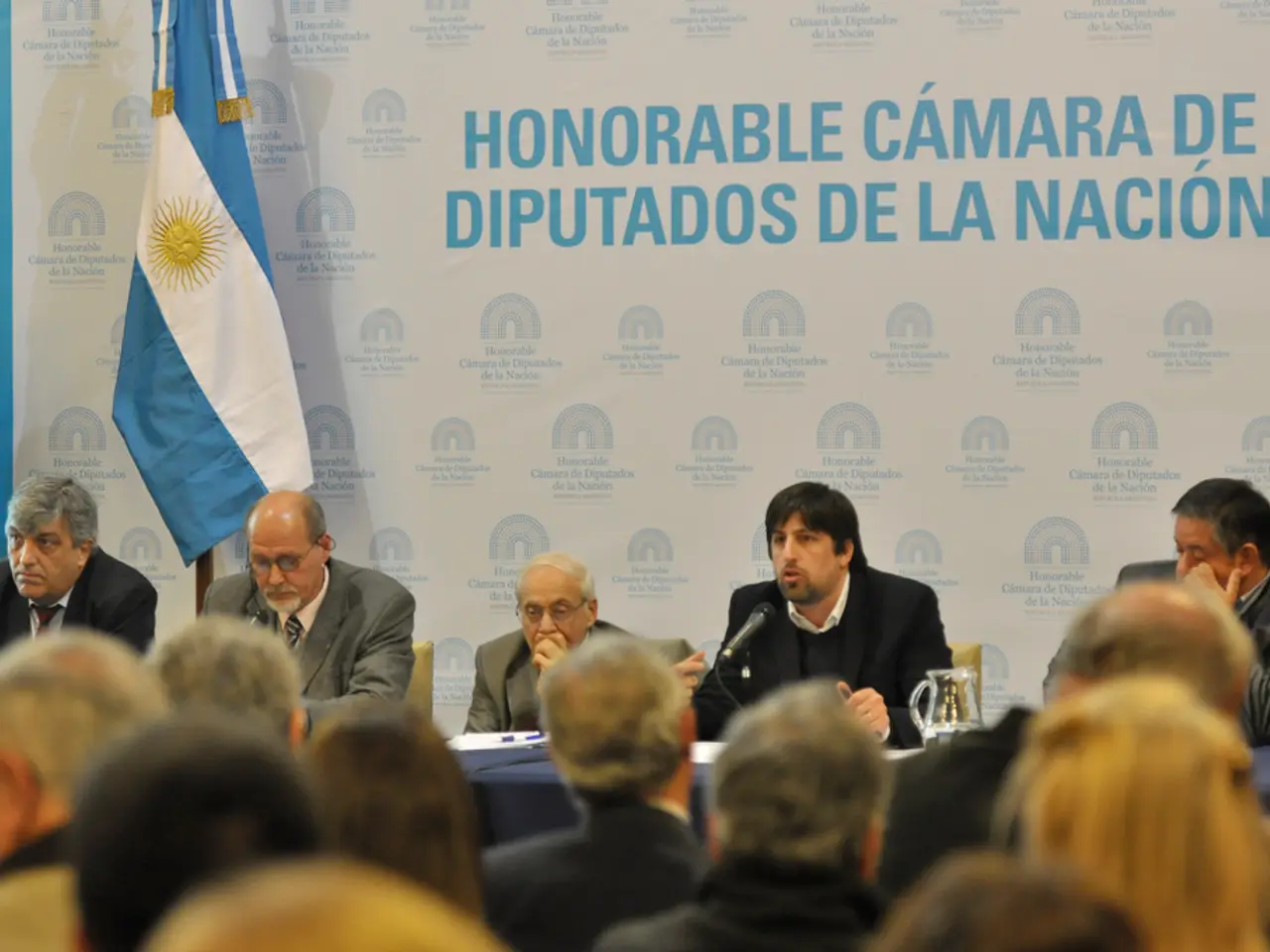Opposition to SIR Discussion Cited in Supreme Court Case by Official Entity
Opposition Demands Parliamentary Debate on Bihar's Voter-Roll Revision
A heated debate over the controversial Bihar Special Intensive Revision (SIR) of the voter-roll has been ongoing in India's Parliament. The opposition parties are demanding a parliamentary debate, accusing the Modi government of refusing such discussions, which has led to disruptions and repeated adjournments.
The opposition believes that the SIR process is controversial, rushed, and likely to disenfranchise millions of voters, particularly vulnerable groups such as minorities and women. The opposition argues that the process violates principles of inclusion and nondiscrimination, citing strict documentation requirements that many poor and marginalized citizens in Bihar cannot meet.
Legally, the Supreme Court has clarified that citizenship and its determination lie within Parliament's domain. However, the Election Commission of India (ECI) has authority to include citizens and exclude non-citizens from voter rolls. While the ECI asserts that the Bihar SIR aims to clean the electoral rolls, critics claim it results in large-scale exclusion—about 6.5 million voters have been omitted in a state with an adult population of over 81 million, lowering voter inclusion to around 88%.
The constitutional implications center on the balance between Parliament’s authority to legislate citizenship and the ECI’s role in maintaining clean electoral rolls to ensure free and fair elections. The opposition argues that the SIR process violates principles of inclusion and nondiscrimination. The Modi government and the ECI maintain the revision is necessary to prevent voter fraud and maintain electoral integrity.
Previous judicial rulings illustrate this tension. The Supreme Court has supported the ECI's right to conduct roll revisions and exclude non-citizens but has expressed concerns about "trust deficiency" and the possible consequences of mass disenfranchisement. The court ruled that biometric identity cards like Aadhaar are not acceptable proofs for voter inclusion, adding complexity to the documents accepted.
Union parliamentary affairs minister Kiren Rijiju reiterated that sub judice matters cannot be debated in Parliament. Despite the protests, one Bill was passed in each House. The Shipping Bill, intended to simplify and modernise shipping law, was approved after a brief discussion. Issues concerning the autonomous Election Commission are beyond Parliament's purview, according to Kiren Rijiju.
In the Lok Sabha, the opposition urged the Speaker to refer the National Sports Governance Bill and the National Anti-Doping (Amendment) Bill to a joint parliamentary committee. In the Rajya Sabha, Leader of the Opposition Mallikarjun Kharge pressed the Chair to allow a debate on the SIR exercise, insisting it is of fundamental importance to democracy.
Kharge described the SIR exercise as "of fundamental importance to our democracy" and invoked a July 21, 2023, ruling by the then Rajya Sabha chair. Members were urged to use Zero Hour to raise their concerns in the Rajya Sabha, as suggested by Deputy Chairman Harivansh. Deputy Chairman Harivansh rejected 35 notices under Rule 267 for failing to meet the rule's requirements.
Finance minister Nirmala Sitharaman tabled the Demands for Grants for Manipur for 2025-26. The electoral-roll revision in Bihar is currently before the Supreme Court, as stated by Kiren Rijiju. The Shipping Bill broadens ownership eligibility for merchant vessels and provides for inquiries into marine casualties.
In conclusion, the controversy over the Bihar SIR highlights a constitutional and political conflict over electoral roll management, democratic participation, and minority rights. The opposition demands a parliamentary debate to address alleged voter exclusion and the timing just before elections, accusing the Modi government of stonewalling such discussions. The Modi government, on the other hand, maintains that the matter is sub judice before the Supreme Court.
The opposition in Parliament is insisting on a debate regarding policy-and-legislation and politics related to Bihar's voter-roll revision, claiming it violates principles of inclusion and nondiscrimination. The general news surrounding this issue revolves around constitutional implications, the balance between Parliament's authority and the Election Commission's role, and the potential disenfranchisement of millions of voters.




